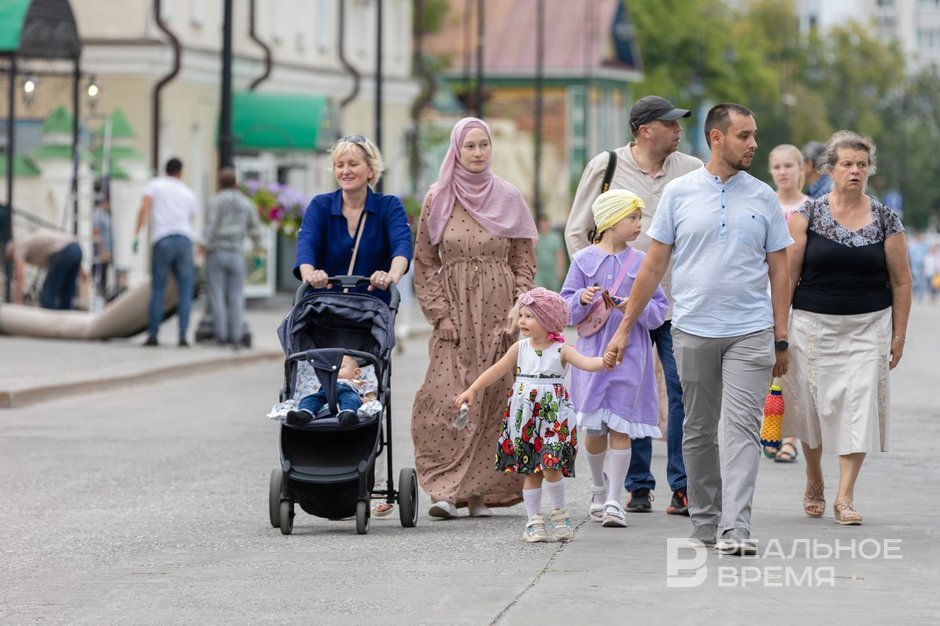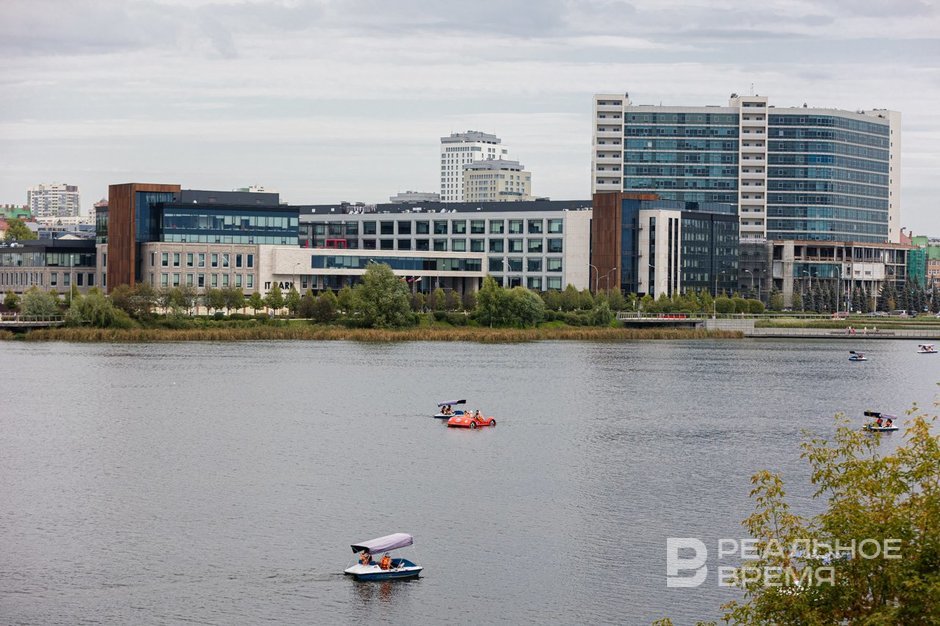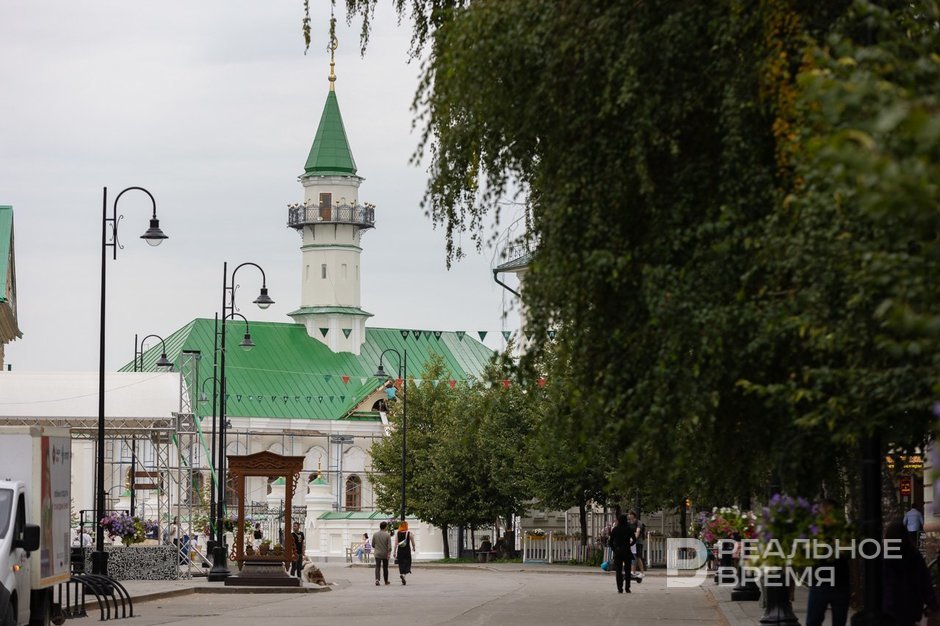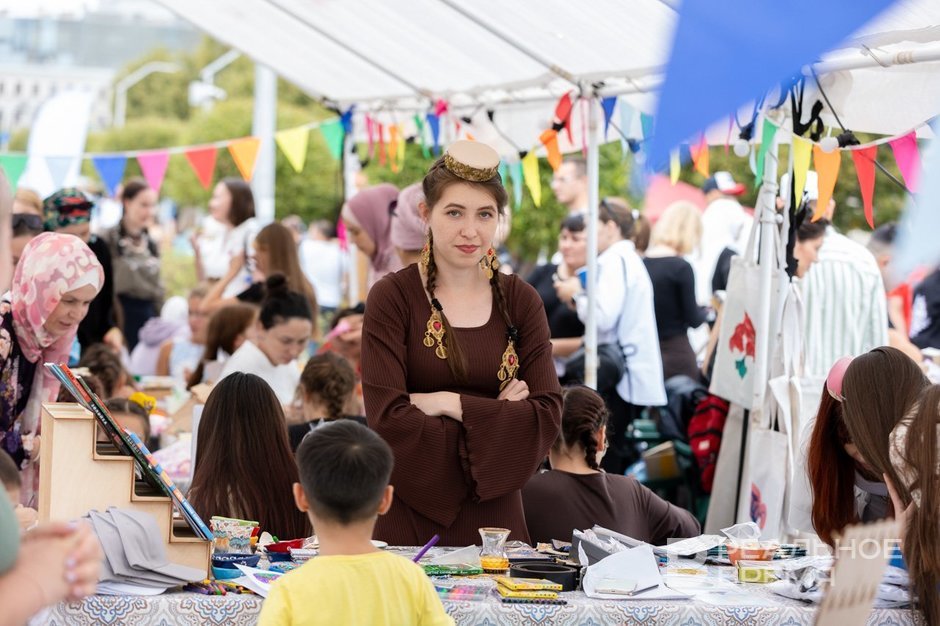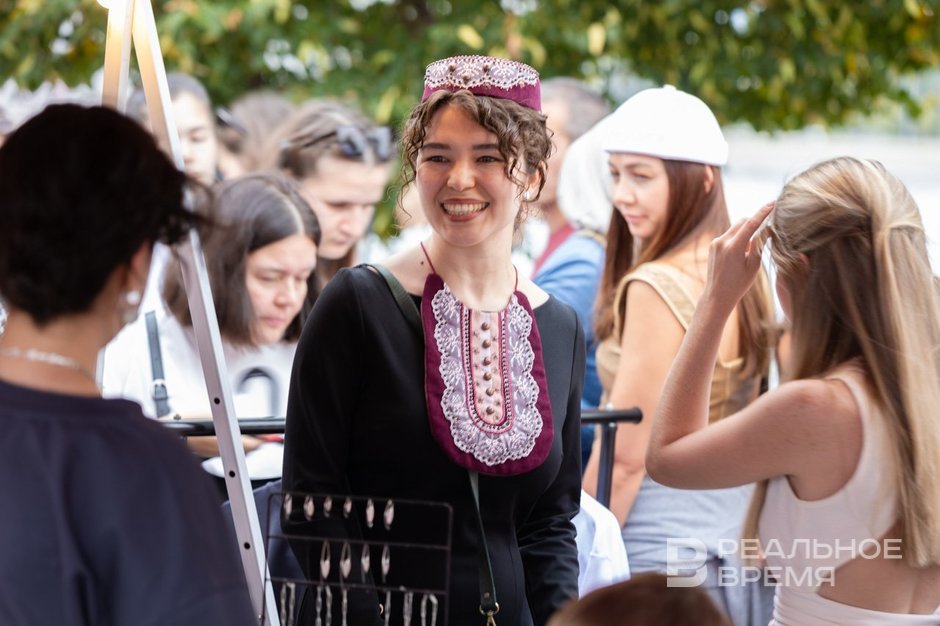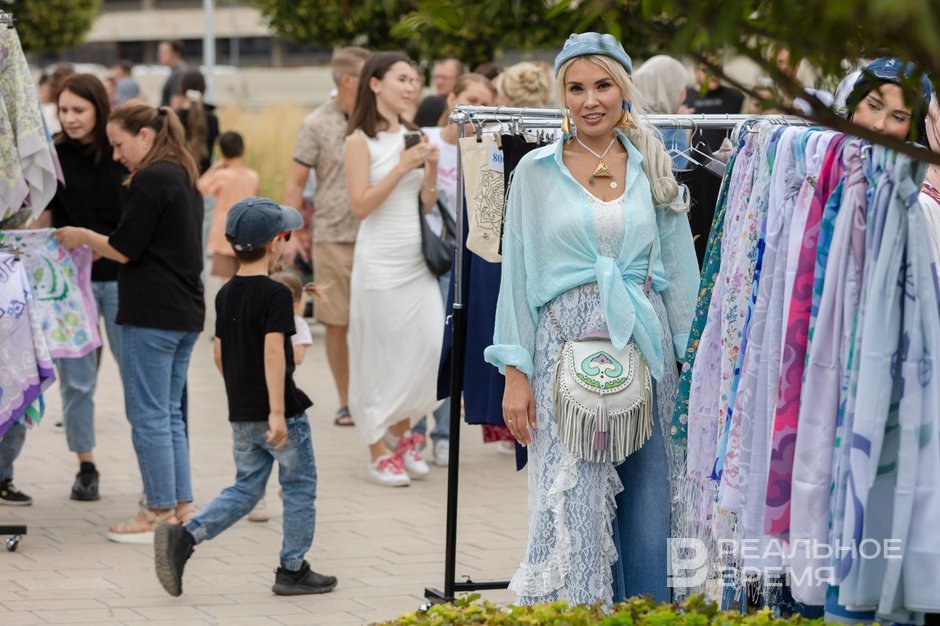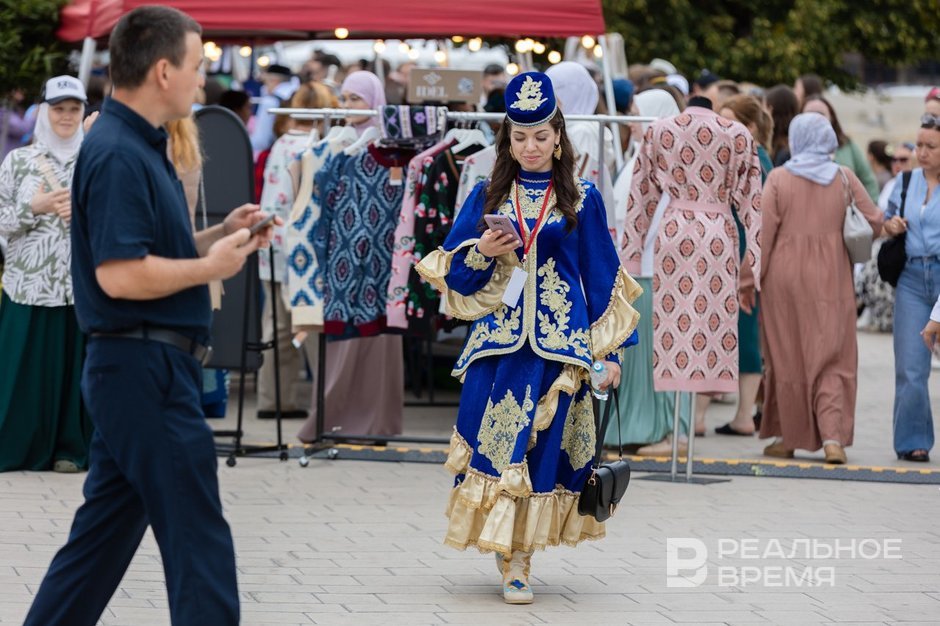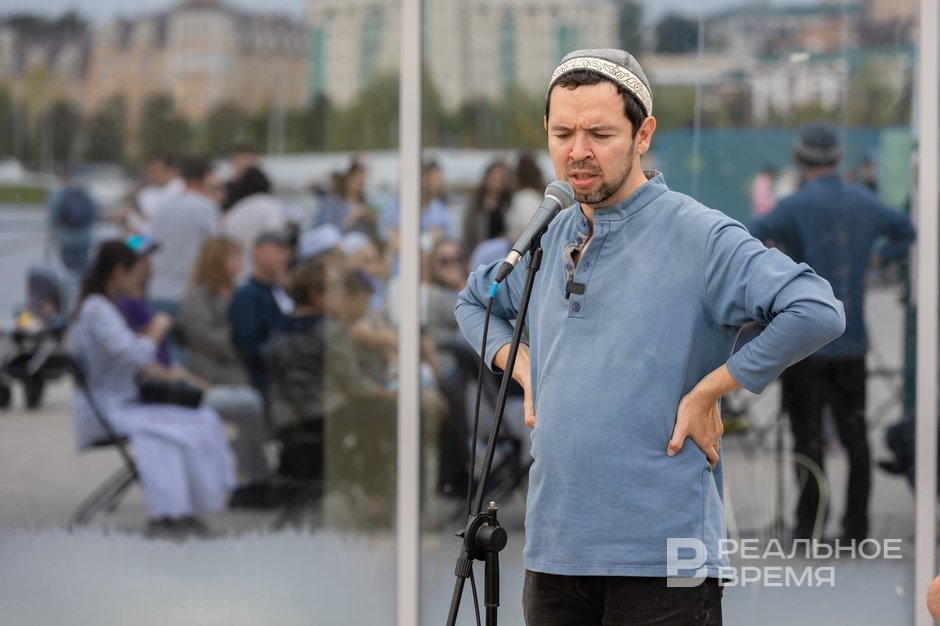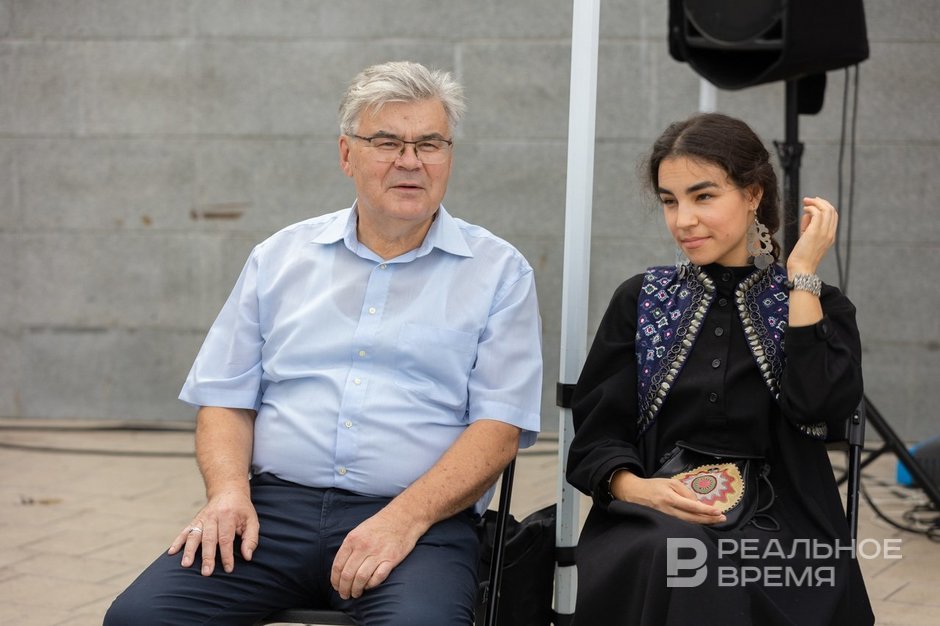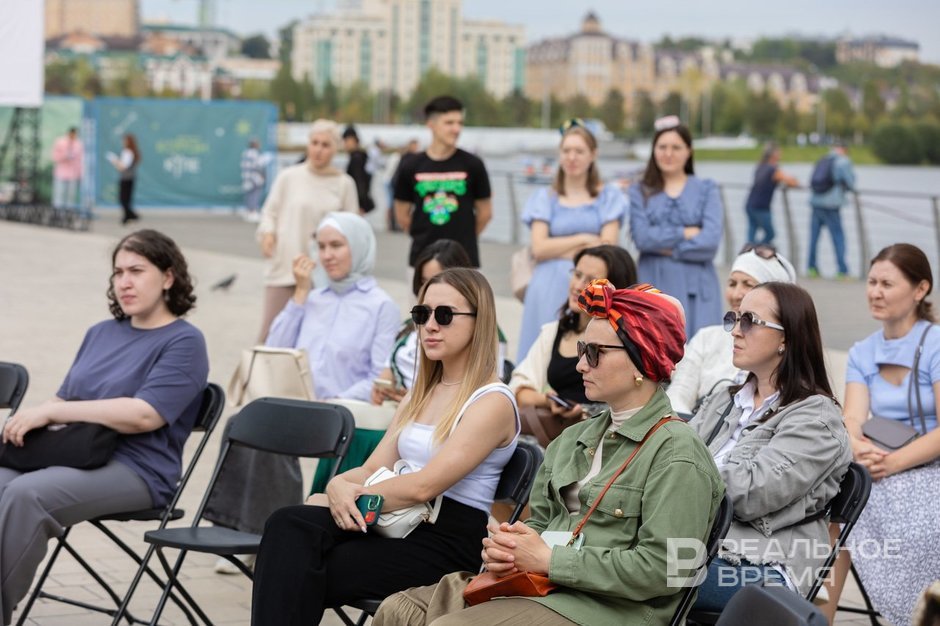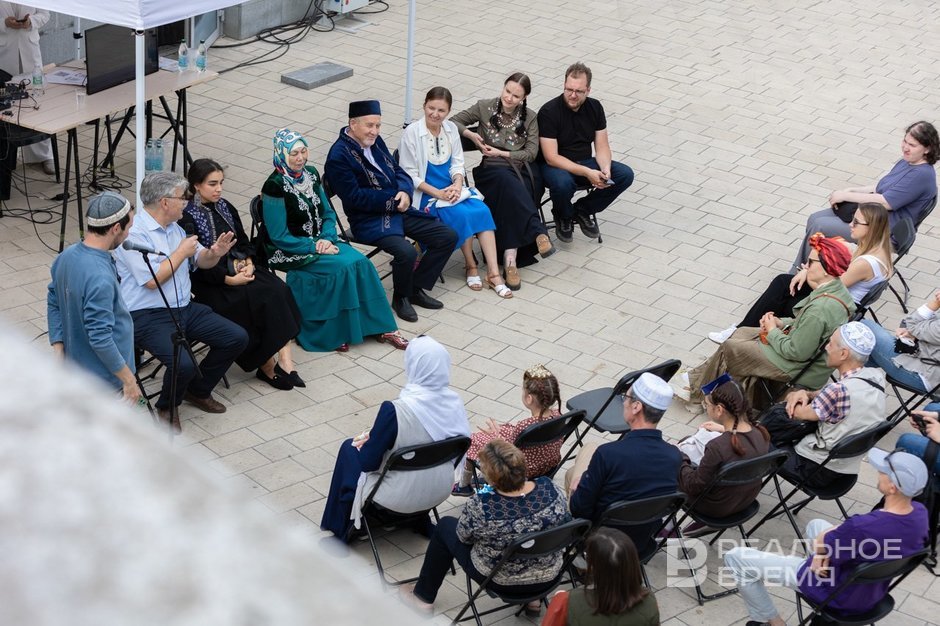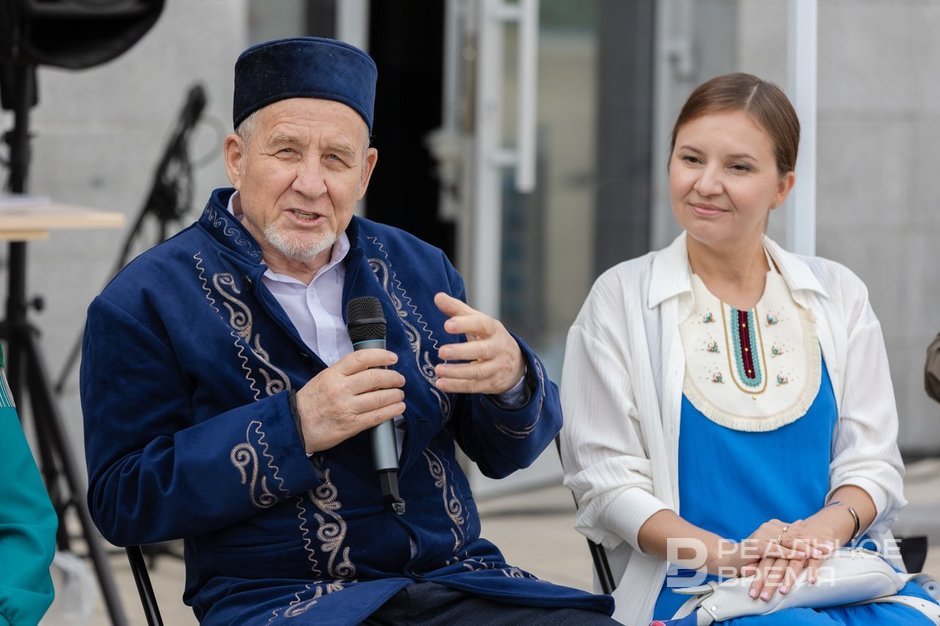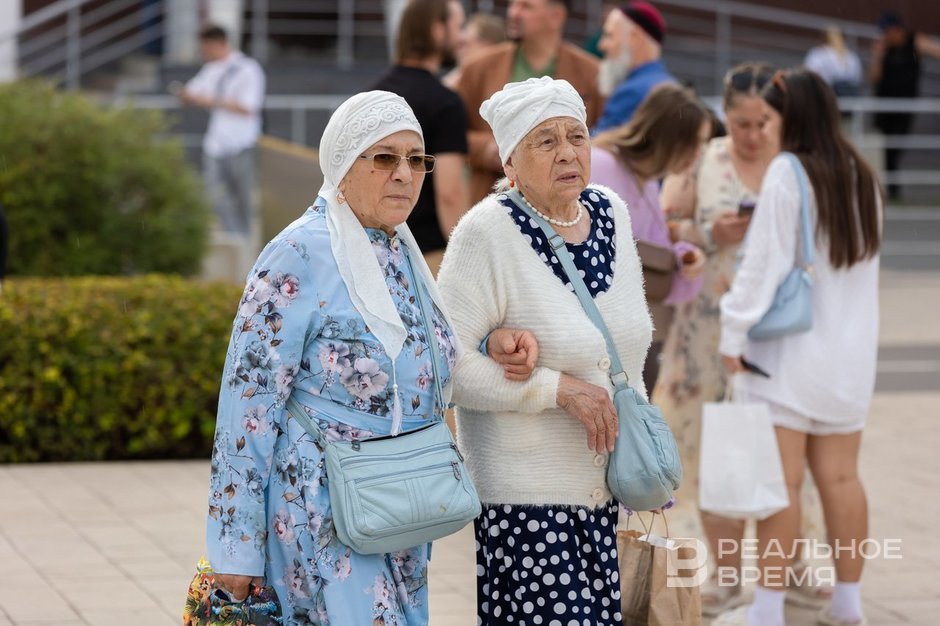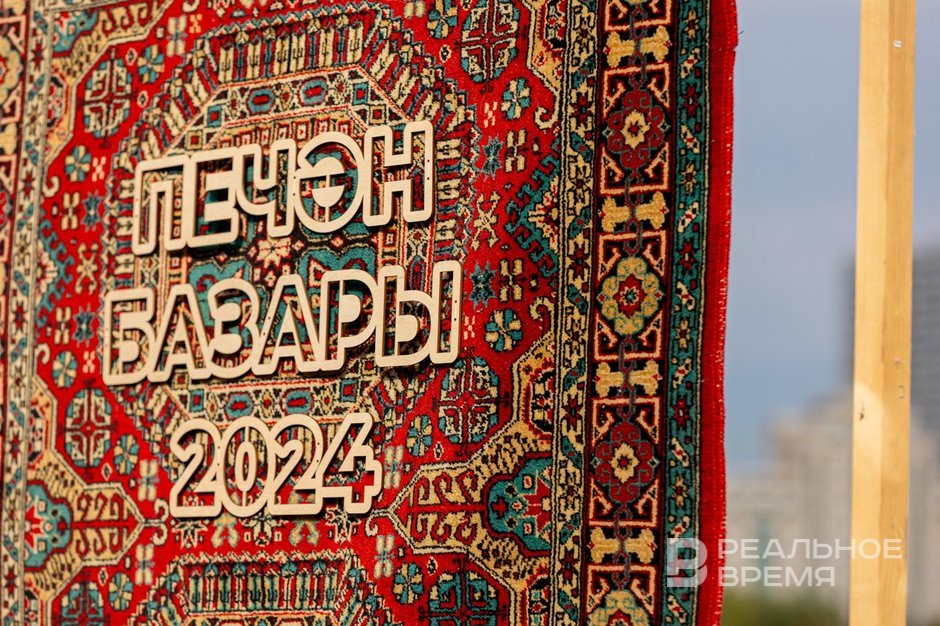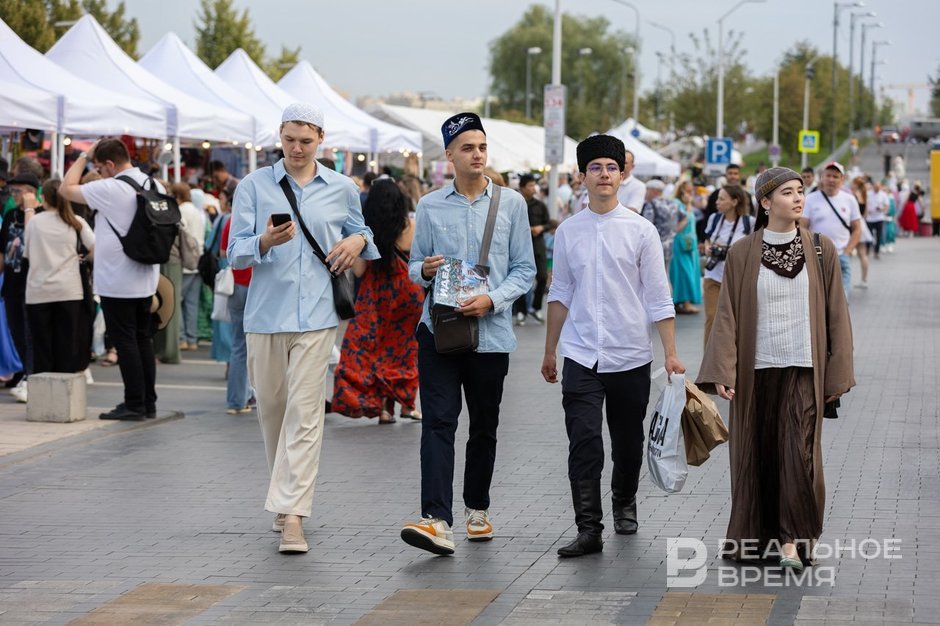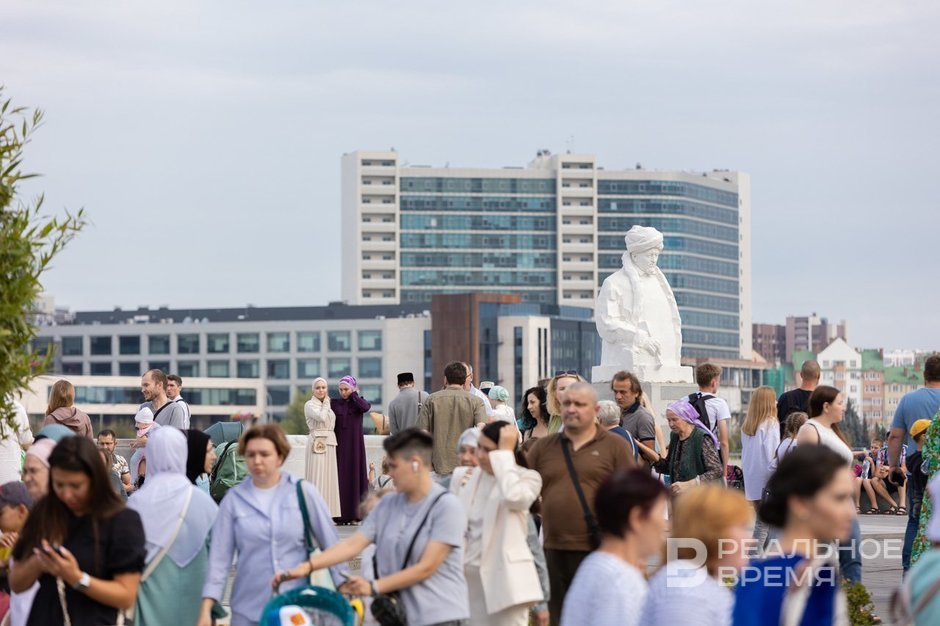Rauf Khasanov: ‘It's not up to grandparents to teach the language. Family first, then school’
Language education issues discussed at Hay Bazaar festival
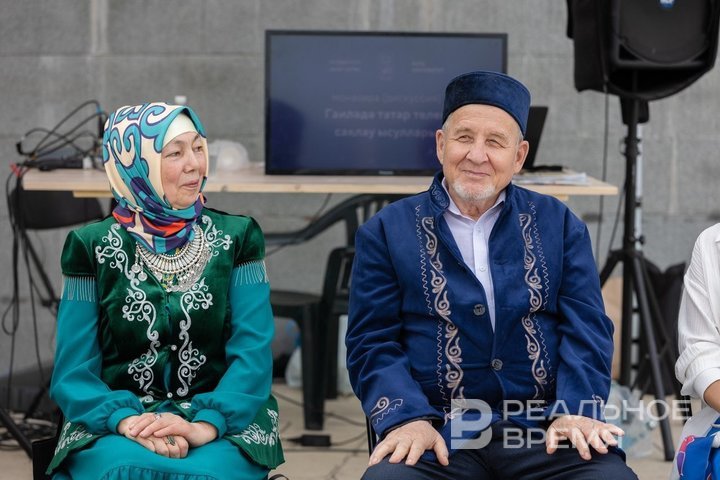
In addition to a fair, concert, film screening, and children's playground, Hey Bazaar festival also included a lecture where Realnoe Vremya’s deputy editor-in-chief Radif Kashapov moderated the discussion Ways to Preserve the Tatar Language in the Family. The participants came to the conclusion that in addition to a responsible attitude to raising children, bilingualism needs to be promoted in Tatarstan.
Parents, kindergarten, school
First, the participants talked about how they themselves began to learn languages. For example, head of the Department for the National Policy on Language Culture of the Executive Committee of Kazan Aysylu Leron explained that when she was a child, when coming to kindergarten, her parents heard the teachers to say their children did not know Russian at all, and therefore, it was necessary to communicate with them in it at home.
“We obediently nodded, but at home we continued to speak Tatar,” noted the mother of three children who studied at Gymnasium No. 2, which is still considered the main Tatar school in Kazan. Children are brought here even from the districts, every day.
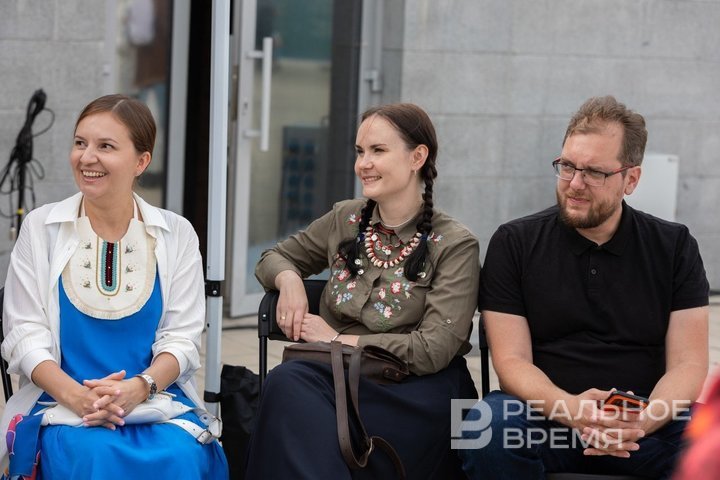
After this, historian Iskander Gilyazov ask for the microphone recalling that he was born in 1958. And in his youth, there were no Tatar schools in Kazan at all. Nevertheless, both his children and grandchildren speak their native language.
“If you ask if there is a recipe for preserving the Tatar language in the family, there is none. Everything depends on the individual, their level of knowledge, their attitude to their ancestors, how proud they are of their people. Everything is individual, there is no recipe. They say that you need to educate at school, in the family, but in the end, what do we want? At what level? If we mean the spoken language, the family will be enough for that. And for literary language, the state is responsible for that. The family alone cannot preserve the language.”
“My older sister and I were born in Kazan,” continued his daughter Milyausha Zakirova. “I did not go to kindergarten, I got acquainted with the Russian language at school, I don’t even remember how. I think everything went well. Everyone says: before kindergarten the child spoke Tatar well, and then it was gone, but that’s how it is... I’m moving on to another topic, my soul is gnawing, I understand that I will not explain to the parent his guilt. My eldest son went to a Russian kindergarten, but I asked his teacher to understand Tatar. I also had a hard time finding a kindergarten for my youngest... In the end, I found one far away. My eldest now goes to the Gymnasium No. 2. Dad said it right: family is the foundation. But for the Tatar language to be at a high level, for there to be progress in this regard, it needs an environment outside the family, events. I sent my son to Apush theatre studio so that he could see that this is not just a kitchen language, but a language that can be used in life.”
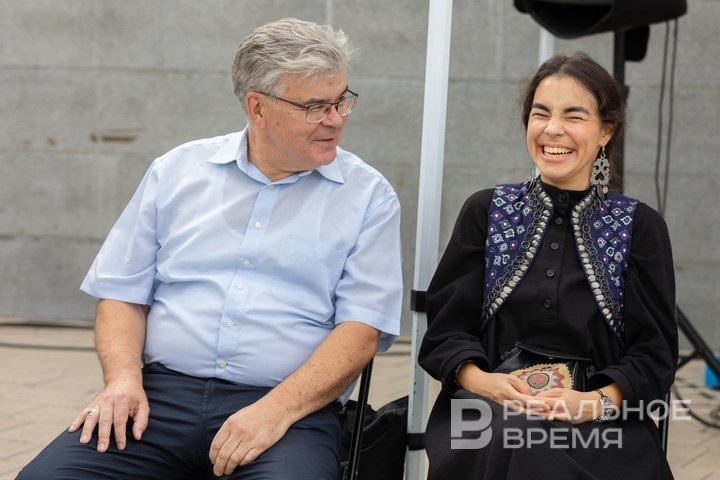
I come to the region, open a school
The chairman of the Council of Elders at the World Congress of Tatars Rauf Khasanov told people the story of his family. His ancestors lived in outside Kazan. When missionaries came there, the whole village moved to the Ural Mountains.
“And our grandfathers used to say: ‘We moved here to preserve our language and faith,’” Khasanov pointed out, “and they used to say: ‘Allah willing, you will return to Kazan. And I raised four sons and we returned. And my father used to tell me ‘Return there strong, rich, religious.’”
The Khasanovs lived in Belebey, in other places, as a leader, a major businessman the head of the family sought to open a Tatar school there. As a result, such schools opened in three districts.
“’Is it possible to build a school for one child,’ they told us. And we gathered people, opened Bashkir classes,” Khasanov said, noting that in one case it was not possible to open schools for the Mordva peoples. “In a family, a language cannot become perfect if it is not taught at school. And there should be control from parents at school. I was always elected head of the parents' committee, and I promoted our desires.”
Khasanov also reported that work is currently underway in Novaya Tura settlement, at the request of local parents, to open a Muslim gymnasium.
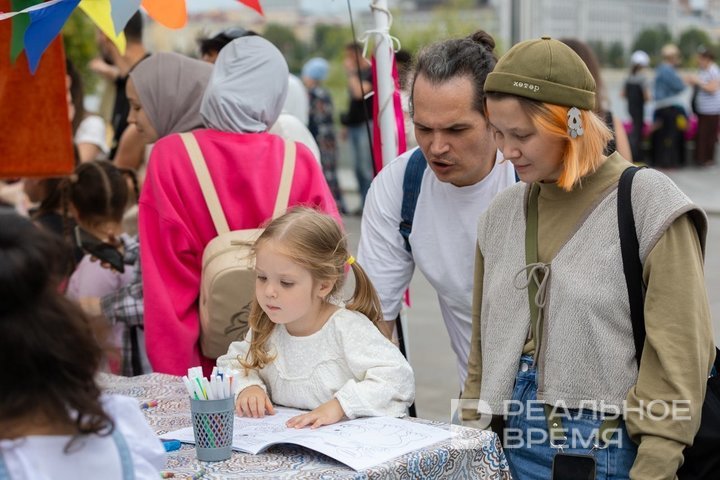
“My name is Dina”
“I’m sitting here like an impostor,” began historian Dina Gatina-Shafikova who probably spoke Tatar publicly for the first time. “There are real Tatar families here! My mother is Natalya. My father is Fasih. I didn’t speak Tatar at all. I studied it for 10 years at school, I didn’t know anything except ‘hello-bye, my name is Dina.’ Now my family, my husband, my parents teach me. When Asma was born, I started reading books, learning how to talk to her. Then I spent a long time looking for a Tatar kindergarten, in our Tatar group we had teacher Galina. Its is so experience. Now Asma is studying in the Gymnasium No. 18. The youngest has a good Tatar group, good teachers, real Tatar aunties who are strict, they speak Tatar to everyone, and in our group we have both Russians and Armenians.”
“My Tatar is poor, I know this, but now I am not embarrassed to speak,” summed up Gatina-Shafikova.
“Dina made mistakes, but this is normal, we must praise her,” continued Iskander Gilyazov. “And we have a bad habit, if a person makes a mistake, forgets, we laugh at him. Only we have such a custom. And we must respect such a person if he tries, makes mistakes, sometimes does not remember the words.”
“No matter how much I improve it, I do not have enough knowledge of the language,” noted researcher Ildar Shafikov. “Psychology, sociology, behaviourism –I can not think it through in Tatar. But this is not a problem, this is reality. We cannot change it. De facto, half of the people do not know the language. But they cannot be erased. The conversation is not even about preserving the language (this is an attempt to jump on a runaway train). We need to talk about preventing people from losing their identity. Preservation of the language… we have already lost here.”
As a moderator, I asked why Tatar children immediately learn Russian on the street, while we do not observe the opposite situation.
“This is adaptability. Population mechanics,” Shafikov concluded. “As Mansur Gilyazov said, our parents were real Tatars, and we are the children of these Tatars.”
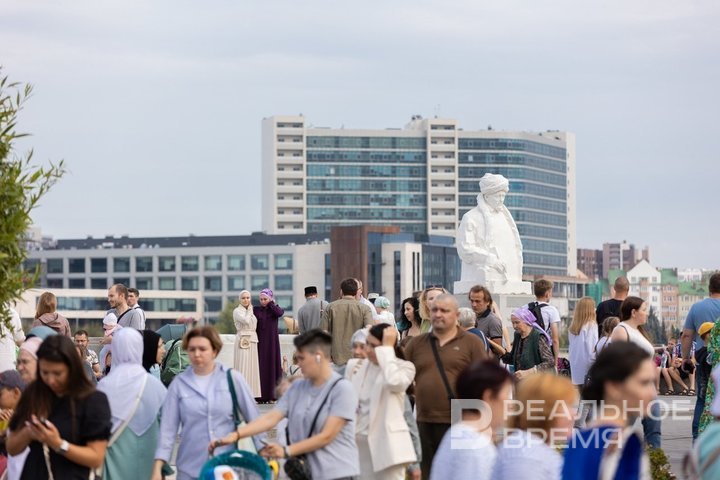
Promote the ideas of bilingualism
One of the spectators suggested that in order for children to know Tatar, they should be sent to the countryside. After all, everyone knows that the language is preserved in the countryside. The speakers objected: the language is not preserved in the countryside either.
“I do not agree with this. It is not up to grandparents to teach a language. Family first, then school,” answered Khasanov. “Here, grandchildren are more likely to teach grandma... Here, in the Open University project, they talk about artificial intelligence in a beautiful language. We need to promote this. We need to believe in the youth. After all, even grandparents are now on YouTube.”
He put several more examples from his family: even if you come home from work tired, and your children ask you to read a book, you need to read it.
“This requires effort. And if you put in the effort, there will be a result. And there is no point in complaining. We are those people who say that ‘we must, we must.’ But we need to work, with children, grandchildren. There were 4-5 of us in Kazan, now there are 28 of us. And we all speak Tatar.”
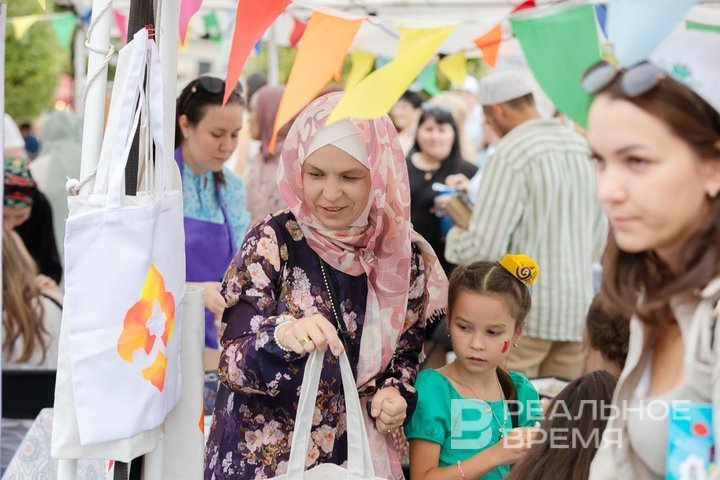
“I agree with the word ‘effort,’” noted Gilyazov. “Preserving the language is not easy, especially in these conditions. There should be a feeling: I am trying, my children, grandchildren speak Tatar, they are proud of it. You can’t go with the flow.”
“We are Tatars. We are not higher or lower than anyone. But we have our own language, our own faith, our own identity,” Gilyazov pointed out. “We are Tatars. Since childhood, I have been surprised: isn’t knowing two languages better than one? Why don’t we pay attention to this? A person who knows two languages is richer in all respects.”
“We lived in Germany for a while,” he summed up.”And we went to visit a German professor. The eldest daughter, Galiya, was 5-6 years old. And the professor said introducing her to his daughter that this is Galiya, she already speaks two languages, Russian and Tatar. He cited her as an example. We must convey this to people.”
